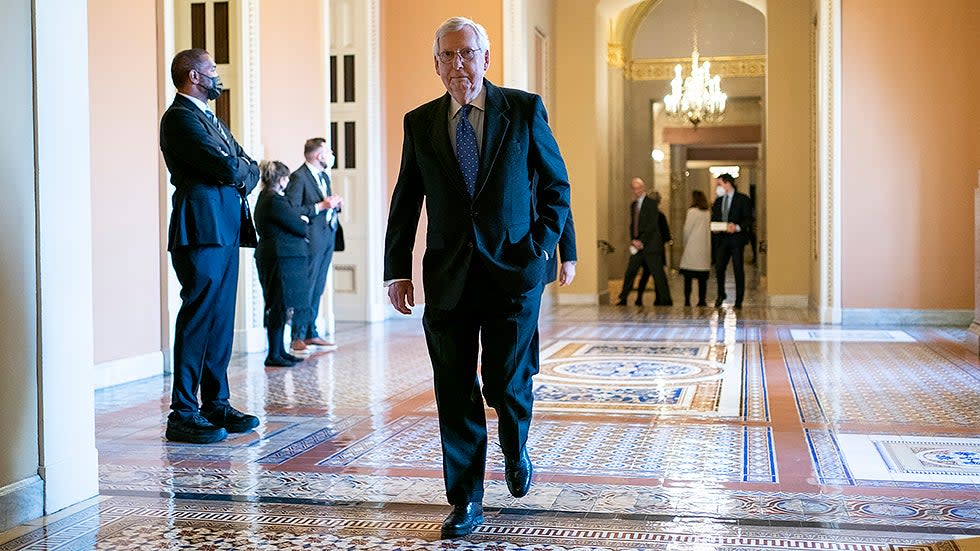McConnell says he made 'inadvertent omission' in voting remarks amid backlash

- Oops!Something went wrong.Please try again later.
Senate GOP Leader Mitch McConnell (R-Ky.) on Friday defended his record on civil rights and race relations, blasting criticism sparked by voting remarks he made earlier this week, where he said he made an "inadvertent omission."
McConnell immediately raised the issue as he started a press conference in Kentucky, saying that he wanted to "take an opportunity at the outset here to address the outrageous characterization of my history and record on voting rights and race relations."
"This outrageous characterization of my record as a result of leaving one word out inadvertently the other day, which I just now have supplied to you, is deeply offensive," McConnell added.
McConnell sparked online backlash earlier this week when he was asked during a press conference if voters of color would be negatively impacted if Democrats' sweeping election and voting bill didn't pass.
"The concern is misplaced, because if you look at the statistics, African American voters are voting in just as high a percentage as Americans," McConnell said at the time.
McConnell, on Friday, initially said that the word he left out of his earlier comments was "almost" Americans. Shortly after the press conference in Kentucky ended, McConnell, after consulting with an aide, walked back to the microphone and corrected his clarification, saying that the word he had accidentally left out while speaking to reporters in D.C. earlier this week was "all".
McConnell's remarks in D.C. sparked backlash online including from Charles Booker, a Democratic Senate candidate, Democratic National Committee Chair Jaime Harrison, Rep. Bobby Rush (D-Ill.) and the NAACP.
The Senate was debating a Democratic bill that merged the Freedom to Vote Act, which would overhaul federal elections and campaign finance laws, and the John Lewis Voting Rights Advancement Act, which would strengthen the 1965 Voting Rights Act. Republicans used the filibuster to block the bill from advancing.
A reporter on Friday noted that the omission could change the meaning of the sentence, and asked the minority leader what his response would be to those who were offended. McConnell said, "My record is not irrelevant."
McConnell noted that he was in attendance for the signing of the 1965 Voting Rights Act and the Martin Luther King Jr.'s "I Have a Dream" speech; supported Daniel Cameron, Kentucky's first Black attorney general; and has had Black staffers.
"I've never been accused of this sort of thing before, it's hurtful and offensive and I think some of the critics know it's totally nonsense," McConnell said.

